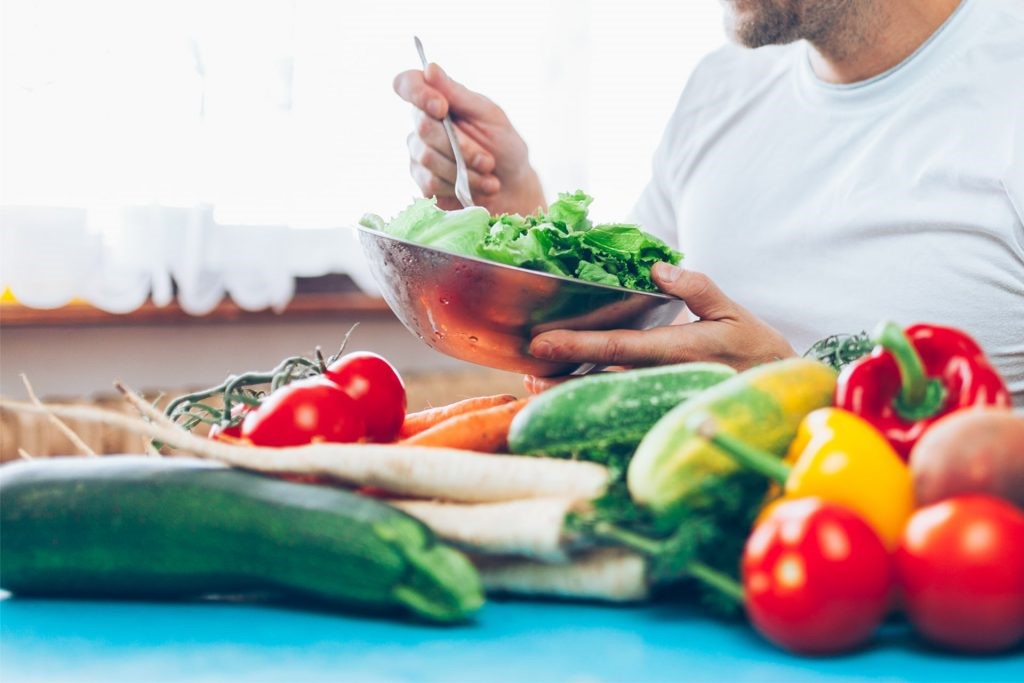
Holidays over: the vademecum for healthy eating and better fitness
Nutrition has an important influence on body development, quality of life and the psychophysical condition of the individual
It is now common knowledge that a healthy eating and regular aerobic physical activity play an essential role in maintaining health
There is also a close relationship between poor nutrition associated with sedentariness, excessive body weight and the incidence of chronic diseases.
After the Christmas period, which is full of not only professional, but also ‘dietary’ holidays, it is good to get back into the spirit of a correct lifestyle, starting with a good salt-water replenishment.
A good habit must be to drink at least two litres of water a day (preferably non-carbonated), indispensable for body hydration, for the elimination of residues and waste through the kidneys and to regulate intestinal transit.
Another very important habit to better face the return from holiday and the re-establishment of daily life, is to maintain regular physical activity of the aerobic type (e.g. running, brisk walking, cycling, etc.) at least 150 minutes a week (equal to 30 minutes five times a week or 45 minutes three times a week): it favours the psycho-physical well-being of the person, preserves their autonomy and slows down ageing.
In a season like the present, it may be useful to consume low-sugar fruits, such as unripe kiwis and citrus fruits such as mandarins and oranges, which are excellent sources of flavonoids, vitamins A and C, and some of the B vitamins.
These fruits have antioxidant properties and contribute to the efficiency of the immune system. Kiwis are also rich in potassium, calcium, phosphorous, magnesium and iron, which, combined, give them anti-anaemic, thirst-quenching, diuretic and healing powers.
Obviously, you should choose these foods according to the region of the world in which you live
As far as vegetables are concerned, it is again important to consider seasonality and consume vegetables such as pumpkin and broccoli in this autumn and winter season.
Pumpkin, which is low in calories but rich in beta-carotene, fibre and minerals (phosphorus and calcium), is important after summer sun exposure, and is an ingredient in many low-calorie recipes, and is a source of vitamin C, vitamins B1, B2 and niacin.
Broccoli, which is rich in fibre, mineral salts (calcium, sodium, iron, phosphorus, potassium) vitamin C, B1, B2, vitamin E and K, contains sulforaphane, which has a protective effect against intestinal and lung cancer.
They also have a high antioxidant power that helps strengthen the immune system and fight water retention, helping the body detoxify by eliminating harmful chemicals.
It is not useful, therefore, to eat less, but to eat better by following the seasonal food cycle.
Simple precautions should therefore be followed, such as eating foods of vegetable origin every day (seasonal fruit and vegetables, pulses, etc.) and paying particular attention to the fats to be used as seasonings (eliminate butter and lard, prefer vegetable oils instead, and in particular extra virgin oil used raw)
Carbohydrate intake should come as much as possible from foods with a low glycaemic index, such as preferably wholegrain cereals (spelt, rice, barley, etc.), wholegrain bread, wholegrain rusks, wholegrain pasta, etc.; and one should not overdo the consumption of particularly ripe and sugary fruit (bananas, grapes, persimmons, figs, watermelon).
Meat consumption should be limited to no more than 4-5 meals per week, giving preference to poultry, rabbit meat, lean veal, and eliminating offal and visible meat fat.
Fish should be eaten at least twice a week (preferably lean oily fish), as a source of protein and omega-3 and omega-6 essential fatty acids.
Among the correct habits for a healthy diet is the limited consumption of eggs and cheese, to a maximum of twice a week (this number must also take into account any eggs used in the preparation of foods such as egg pasta, cakes, breading, etc.), and dried fruit taken in small daily doses.
A few simple dietary rules for returning to a healthy, balanced lifestyle after the winter holidays
It is also very important to pay particular attention to the cooking techniques used for various foods: for meat and fish, grilled, baked and grilled are preferable, as they do not require much seasoning, and fried foods should be avoided; fruit and vegetables should be eaten raw for the most part, or at most steamed and cooked in a little water.
Read Also
Emergency Live Even More…Live: Download The New Free App Of Your Newspaper For IOS And Android
Climate Change: The Environmental Impact Of Christmas, How Significant It Is And How To Reduce It
Bloated Belly: What To Eat During The Holidays
Traveller’s Diarrhoea: Tips To Prevent And Treat It
Jet Lag: How To Reduce Symptoms After A Long Journey?
Diabetic Retinopathy: The Importance Of Screening
Diabetic Retinopathy: Prevention And Controls To Avoid Complications
Diagnosis Of Diabetes: Why It Often Arrives Late
Diabetic Microangiopathy: What It Is And How To Treat It
Diabetes: Doing Sport Helps Blood Glucose Control
Type 2 Diabetes: New Drugs For A Personalised Treatment Approach
The Diabetic Diet: 3 False Myths To Dispel
Paediatrics, Diabetic Ketoacidosis: A Recent PECARN Study Sheds New Light On The Condition
Orthopaedics: What Is Hammer Toe?
Hollow Foot: What It Is And How To Recognise It
Occupational (And Non-Occupational) Diseases: Shock Waves For The Treatment Of Plantar Fasciitis
Flat Feet In Children: How To Recognise Them And What To Do About It
Swollen Feet, A Trivial Symptom? No, And Here’s What Serious Diseases They May Be Associated With
Varicose Veins: What Are Elastic Compression Stockings For?
Diabetes Mellitus: Symptoms, Causes And Significance Of The Diabetic Foot
Diabetic Foot: Symptoms, Treatment And Prevention
Type 1 And Type 2 Diabetes: What Are The Differences?
Diabetes And Cardiovascular Risk: What Are The Main Complications
Diabetes: Causes, Symptoms And Complications
Diabetes And Christmas: 9 Tips For Living And Surviving The Festive Season


